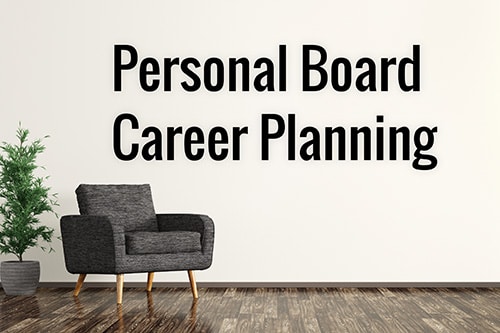If you are considering a board directorship, it is of vital importance that you understand the risks associated with becoming a non-executive director. You probably would not be reading this if you had not already decided, in your mind, that the rewards of a board directorship outweigh the risks. However, that does not necessarily mean that you are suited to becoming a non-executive director.
Who are you really?
Let’s first consider who you are and why you want to sit on a board. You should also think about whether you are suitable to take on a board directorship. Each of these is an important question to ask yourself.
Why do you want a board role?
Any Chair or nominations committee is going to be intimately interested in why you want a board directorship or another board role.
It was not long ago that I conducted a counseling session with a highly-experienced woman with tons of Government, Commercial Change, IT and strategic experience. At the time, she was advising SMEs and C-Suites on how to commercialise new products and break into new markets. She was passionate about doing this and very good at it. She brought a wealth of contacts, good quality clients and personal executive experience – she was also well respected as a consultant and very intelligent.
Her goal was to develop a board portfolio – she told me so. We spent a good 30 minutes together with her explaining what she did – particularly her experience and passion for strategic work around change and product development and working with boards.
At the end of the session I asked why she wanted a board appointment. She reiterated her experience working with boards and delivering on strategic initiatives, that this is what she could do in a board capacity.
However, she did not explain why she wanted to sit on a board, other than being capable. I asked her again why she wanted to sit on a board; she was already doing (and being paid well for) the same as what she wanted to do as a non-executive director. Further, I pushed to suggest that, with a board directorship, she would not be getting into the detail that she really enjoyed and that she believed was the reason that she would be appointed in the first place.
In this situation, she had misread the role of a board director and had not properly assessed her own working style. In fact, she was an autonomous decision maker who, as a consultant, was tasked to make things happen.
Whilst really good at this, she had not been able to articulate how she could transfer her experience to a board context or be someone who could operate as part of a wider cohort of board directors.
So, who are you? Are you an autonomous decision maker? Are you used to making things happen and get frustrated when you have to get others on board first? Be critical. Board work can be frustrating for those who need to get their fingers into the operational detail of an organisation. Having settled that in your mind, you should ask yourself whether you have the capacity to look at the macro issues and risks facing an organisation. This can be more difficult than it might initially seem.
To begin with, you must have a certain character to be an effective board member; you must not be afraid to provide an opinion. One of the main reasons you will gain a board directorship is because of your different perspective. However, it is of no value at all if no one hears it; you must have enough confidence to deliver your opinion in front of others.
Equally important is the way that you deliver this opinion. A board is a fragile ecosystem and relies upon clear and appropriate communication. The Chair should manage this, but it is reliant upon the directors themselves to understand that an autonomous approach to making decisions and providing opinions is not appropriate and can devastate the effectiveness of a board.
Are you suitable for a board directorship?
A key element of having a successful journey towards a board appointment, is considering which sort of board or organisation is going to be most appropriate for you.
Make sure you manage your expectations
To manage your expectations, there are two questions you need to ask yourself:
- What sort of board role is right for me?
- What sort of board can I realistically expect to be appointed to?
These are useful questions to ask yourself during your search for a board directorship. There is no easy answer to these questions, although it is one that I am asked often by aspiring board directors.
Understanding what boards or Chairs look for in potential board members, is critical here. Answering this to yourself will go a long way towards you deciding on a board career. Having said that, I think that it is often the wrong question to ask. Instead, your question should be ‘If I were a Chair, what sort of board would I realistically appoint myself to?’
Take a moment to answer this – be critical and don’t just answer with the name of an organisation you like. Instead, name the organisation or industry you think you can be appointed to and state WHY.
Let me give you an example of why managing your expectations is so important. I once counseled a client who had run a significant sized family owned food manufacturing business and wanted to sit on the board of a major food retailer. He had no prior board experience and few connections in this space. He was also used to doing things his way and making autonomous decisions. The sum of it was that he was never going to be appointed to that sort of board – despite some evidence that he was good at what he did and knew the business. The problem was not the aspiration itself – it is good to be ambitious – but rather that he was unwilling to be moved on which board was for him.
His inability to manage his expectations had two negative impacts, both stemming from his desire to sit on boards but not being passionate about serving on them or knowing why he should be appointed.
- He became disgruntled with his search very quickly – you know the type, everyone else is wrong, I am right and you are all missing out on the opportunity which is me.
- Worse still, his reputation suffered immensely. Prospective recruiting organisations, colleagues and search firms recognized quickly that he was too arrogant (bordering on delusional) to sit on a board. This translated to ZERO new introductions and him being a reputational risk for recruiters (and I am sorry to say it, even me) to recommend to others to meet.
Ask yourself these questions to help manage your expectations:
To help you manage your expectations there are a few questions you should ask yourself. It might help you begin to define where you should be focusing your attention.
- How much/do you need to get paid?
- Do you have past board experience?
- What is your skill set?
- Where do you live?
- How valuable are your contacts and to whom?
- What are your timings?
- What are your passions?
- What time do you have to spend on board work?
- How much preparation are you willing to do?
The cumulative response to these questions will guide you in your decision making about what sort of board role is appropriate for you. Further, they will provide some structure to help you eliminate perceived opportunities that may never pay off and reduce your journey to a board directorship to a tried but failed experience.
Board Direction helps you fast track your appointment as non-executive director. Click here to find out more
Define your board career aspirations and the plan the journey towards achieving them with David Schwarz – Australia’s leading board recruitment expert. This intensive Board Career Planning session will ensure that the time you spend gets traction and results in opportunities that you might have otherwise thought were impossible.
Book your Career Planning Session
About the Author
David Schwarz is CEO & Founder of Board Direction – Australia’s leading board advertising and non-executive career support firm. He has over a decade of experience of putting people on boards as an international headhunter and a non-executive recruiter and has interviewed over one thousand non-executives and placed hundreds into some of the most significant public, private and NFP roles in the world. He has been described as Australia’s leading board recruitment expert, is a published author, a regular speaker on the board appointment process and runs Board Search Masterclasses across Australia. He is one of Australia’s Top 10 LinkedIn users with over 26,000 connections. Email: ua.mo1714171520c.noi1714171520tceri1714171520ddrao1714171520b@tca1714171520tnoC1714171520





